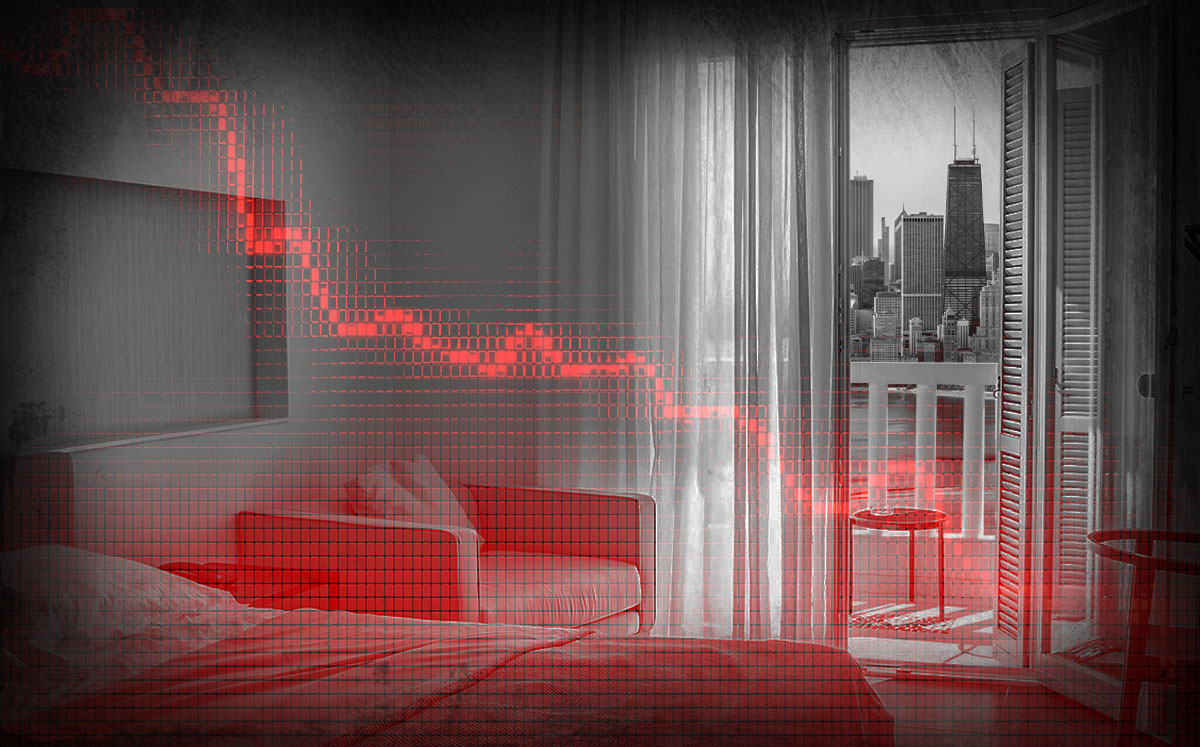This week, the Park Hyatt Chicago and the Peninsula became the first luxury hotels in Chicago to temporarily close in an effort to slow the rapid spread of the coronavirus. Other Downtown hotels may follow with temporary closures or at least a drastic reduction in staffing.
But guests haven’t been checking in anyway.
Between March 8 and 14, occupancy at Chicago hotels dropped from 56 percent to 44 percent, according to data released this week from hospitality research firm STR. Average daily rate dropped more than 12 percent to $109, while revenue per available room cratered to $48 from $64.
And that was before Gov. J.B. Pritker’s Friday announcement of a state shelter-in-place order, effective Saturday. California Gov. Gavin Newsom issued a similar order Thursday night. Also on Friday, New York Gov. Andrew Cuomo laid out what amount to shelter-in-place rules, including barring employees of non-essential businesses from reporting to work.
Pritzker’s order means all Illinois residents must stay in their homes unless they’re performing essential activities, such as grocery shopping, going to the pharmacy, gassing up their cars and taking a walk outside.
For the hotel industry, which has already been crushed by the fast-moving virus, the Chicago declines will likely double this week, according to hotel analyst Michael Bellisario of financial services firm Baird.
Cancellations at McCormick Place — the largest convention center in North America — took a toll on Chicago’s hotels, leading to thousands of canceled reservations. At least 23 events scheduled to take place there had already been called off, accounting for a loss of more than $282 million in economic impact and over 240,000 hotel room nights, according to the city’s tourism arm, Choose Chicago.
“The sheer volume of canceled hotel rooms has sent a ripple effect throughout the economy that cannot be understated,” Illinois Hotel and Lodging Association President and CEO Michael Jacobson said in a statement.
Hotel analyst Ted Mandigo of TR Mandigo & Company expects the overall impact of the coronavirus to lead to a 6-plus percent reduction in occupancy for the entire year, bringing it to 68 percent or lower, compared to 74 in 2019.
As the coronavirus has battered hotels across the U.S., the industry this week sought a $150 billion federal bailout.
And if restrictions last several months rather than several weeks, “owners will need to rethink reserves, staffing models, leverage profiles, lots of financial considerations,” Bellisario said. It’s possible that hotels could be converted to other uses, like as apartments. Long-term effects could mean smaller companies going belly up, and hotel development — which had been robust in Chicago — slowing down, he added.
In the short-term, other solutions are also being considered. In New York City, officials are mulling a plan to convert hotels into hospitals for patients who don’t have the virus.
Meanwhile, across Chicago, numerous hotel developments may now be in limbo. Those could include Fern Hill’s planned boutique hotel in the Motor Row historic district, along with the long-awaited Nobu Hotel in Fulton Market.
